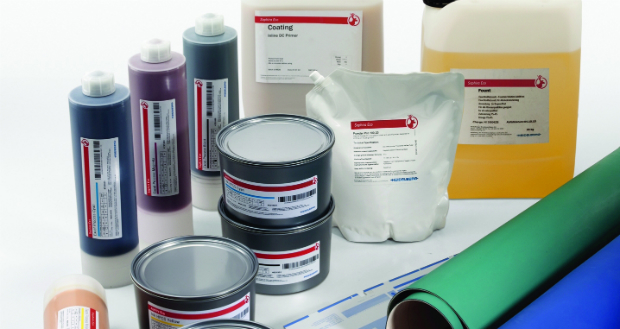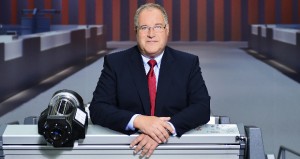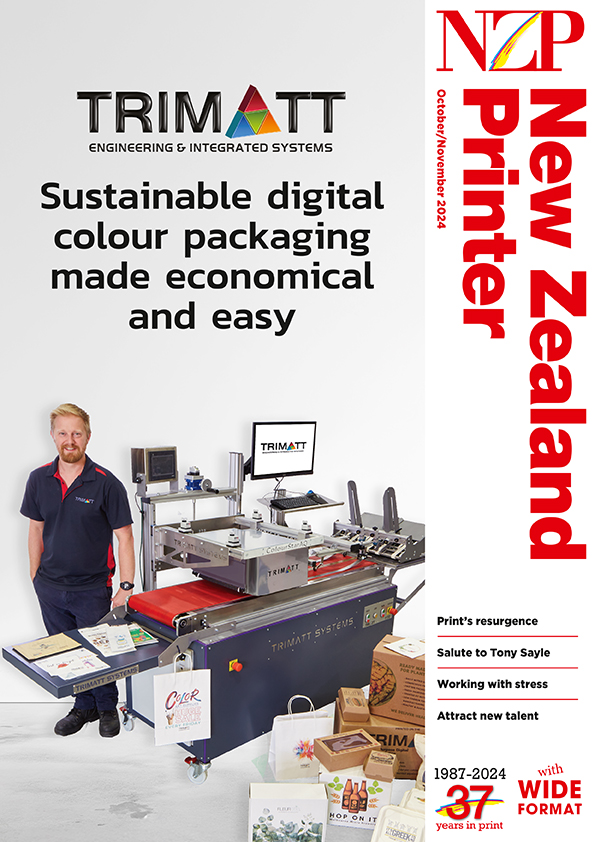Heidelberg reports progress with its efforts in gearing its portfolio toward profitability and growth, moving away from expectations of higher press sales to interests in consumables, digital technology, service and rationalisation.
Gerold Linzbach, chief executive officer of Heidelberg, says, “Following the strategic focus on returning to profitability in the previous financial year, this year will see Heidelberg taking key steps to enhance its portfolio. This will involve further expanding growth areas to enhance the company’s profitability and secure it long term. The goal of our active portfolio management is for our service- and consumables-based business, which benefits from high margins and is less cyclical, to account for a share of Group sales of more than 50 percent.“
The world’s largest press manufacturer has completed the realignment of its postpress business as planned and on schedule. Also, at the end of October, Heidelberg signed a cooperation agreement with Masterwork Machinery in China covering postpress packaging equipment. Under this agreement, the Chinese company Masterwork will develop and manufacture future products and solutions for this market segment; marketing and service outside China and Japan will remain in the hands of Heidelberg. The two companies have also agreed to consider joint production of components in China.
The company has completed negotiations with employee representatives regarding a reduction in the workforce at Heidleberg‘s Ludwigsburg site and it has reached agreement on the closure of the Leipzig site. Heidelberg says it aims to place postpress on a profitable footing by focusing on competitive products and to improve the result by approximately € 30m ($47.5m) from the next financial year onward by adapting the business model.
In its new sheetfed offset machinery business, it aims to increase profitability in the near future by adapting to the fluctuations in demand, which typify the market, by increasing flexibility. To this end, it will advance product modularisation and standardisation in order to achieve economies of scale despite the reduced production volume. As part of these measures, it will lower the break-even point for operating profit in this area by the end of the year by adjusting personnel capacity.
Heidelberg continues to see expansion in the profitable, and less cyclical, consumables business area, as another key strategic goal. The takeover of Belgian consumables supplier BluePrint Products marks an initial step in this direction and provides Heidelberg with know-how in the development and manufacture of printing chemicals. BluePrint offers a range of dampening solutions and washing agents for presses and has an innovative approach to environmentally friendly products, according to Heidelberg. The companies have worked together for some time and Heidelberg will incorporate BluePrint’s entire product portfolio into its global sales network.
The company continues to channel its energies into the external growth of its business, with the complete takeover of software manufacturer Neo7even in October and the launch of new digital printing systems with cooperation partners Fujifilm and Ricoh during the same period. It aims to generate annual sales of over € 200 million in the digital sector in the medium term.
Heidelberg reports EBITDA increased to € 53m after the first half-year of 2014/2015. It says the half-yearly figures for financial year 2014/2015 (April 1 to September 30, 2014) reflect the success of the initiatives to boost efficiency on a lasting basis but are also influenced by the measures to restructure the portfolio and the associated non-recurring effects.
At € 996 million (HY1-2013/2014: € 1,097m), Group sales after six months were in line with expectations in all regions except Asia. The company saw a particular decline in new machine sales in China.
It claims that, as a result of the measures initiated to improve margins and profitability, It increased both EBITDA and EBIT, each excluding special items, in the reporting period year-on-year.
The complete takeover of Gallus in Switzerland resulted in one-time income of € 18mn. Overall, the half-year EBITDA, excluding special items, climbed from € 31m to € 53m. EBIT excluding special items for portfolio measures improved from € –7m to € 19m. The half-year financial result was € –33m (previous year € –28m).
Dirk Kaliebe, chief financial officer at Heidelberg, says, “Portfolio management is influencing the profitability of this financial year, with both positive and significantly negative non-recurring effects, but the ultimate improvement will be a lasting one.“
Positive free cash flow in the second quarter improved the half-yearly figure to € –30m. At € 272m, Heidelberg says the net financial debt remains at a low level. The equity ratio was 13.3 percent (end of financial year 2013/2014: 16.0 percent). Kaliebe adds, “The company’s low level of debt lays the foundation for continued restructuring of the Group.”
As at September 30, 2014, the Heidelberg Group had a global workforce of 12,393 plus 550 trainees (previous year: 13,001 plus 615 trainees).
Based on this situation, including the economic slowdown in China, Heidelberg expects overall sales in financial year 2014/2015 to fall to around five percent year-on-year. The company intends to continue to actively reduce low-margin business. It expects that, overall, the measures should further improve the company’s operating profitability and help Heidelberg get closer still to its target of an operating margin of at least eight percent in terms of EBITDA.
To view the Heidelberg report on the first half-year of financial year 2014/2015, click here



